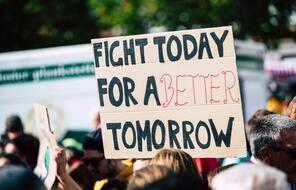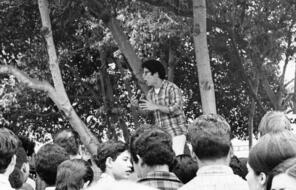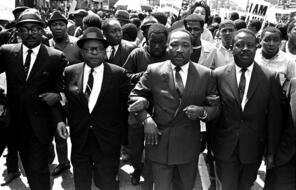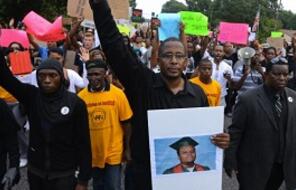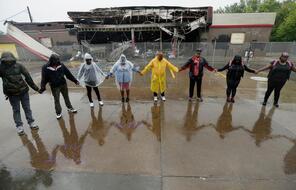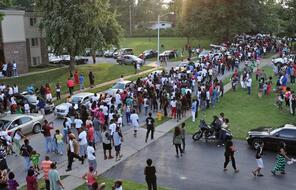The TRC: A Need for a Moral Bottom Line
At a Glance
Language
English — USSubject
- History
- Social Studies
- Democracy & Civic Engagement
Bishop Frank Retief was the leader of the St. James Church in Kenilworth, Cape Town, at the time of an attack by three members of the Azanian People’s Liberation Army on Sunday, July 25, 1993. Using hand grenades and automatic rifles, the fighters killed 11 worshippers and injured more than 50 in the attack on the congregation.
Bishop Retief was interviewed about his view of the TRC by the Cape Argus in October 1998, resulting in this article.
There is nothing trite or easy about ‘truth’ and ‘reconciliation’ in Frank Retief’s estimation, not least for him having struggled hard to live up to them, to bear them out . . . All three attackers were granted amnesty by the Truth and Reconciliation Commission. They said they were advancing their struggle, and the commission accepted that . . .
Retief battled with the concept: ‘Our difficulty is that trials have not been held to determine whether [they] are guilty or not. Granting amnesty without a trial is assuming innocence. Granting amnesty after a trial is mercy. But by granting amnesty without a trial, you are redefining ethics, and personal responsibility is undermined. We feel that is fundamentally dehumanising . . . ’
Retief remains committed to the TRC process . . . [:] ‘I think the hope of all South Africans is that this will bring closure to the past and lay all the ghosts to rest, so that they will be able to get on with their lives, with finding each other and building a nation. That’s our hope, too[.] [A]s Christians, ‘truth’ and ‘reconciliation’ are especially important, and for this reason, we have always identified with, and supported, the process.’
However, while he believes ‘a lot of truth’ has come out — ‘helping me as a white South African to understand what was actually at the heart of apartheid’ — he is not certain how much reconciliation has been achieved.
‘There have been magnanimous gestures of generosity and forgiveness, but reconciliation goes far deeper. It is not just a question of saying: ‘I did this, I am sorry, will you forgive me?’
‘There is something deeper that must be touched.’
As a whole, the exercise had revealed the ‘true loss of innocence, and of public morality by everybody concerned, not just the previous government, but also the freedom fighters.’
‘There has been a blurring of the line between right and wrong . . . and this has left us with a morality of victimism, excuses, blame and a refusal to accept personal responsibility for things that have gone wrong . . . So we believe South Africa now faces a great spiritual challenge . . . A new morality cannot be legislated, but there has to be consensus on what’s right or what’s wrong. There’s a need for a moral bottom line.’
Retief adds: ‘Once the political grumbles have died down, the question will be: what now? And the answer is that there is no way forward without some sense of a national ethic.’
Connection Questions
- Bishop Retief suggests that although the TRC’s efforts to uncover the truth exposed many atrocities that helped victims, reconciliation is more difficult to achieve. Why does Retief have this view? What do you think? Is reconciliation best thought of as a process rather than something that is achieved?
- What does Retief suggest is necessary to achieve reconciliation in South African society, and whose responsibility is it to achieve this reconciliation?
- Retief suggests that nation building cannot be accomplished without "consensus on what’s right or what’s wrong” or “some sense of a national ethic.” What do you think about his suggestion?
How to Cite This Reading
Facing History & Ourselves, “The TRC: A Need for a Moral Bottom Line,” last updated July 31, 2018.
This reading contains text not authored by Facing History & Ourselves. See footnotes for source information.

